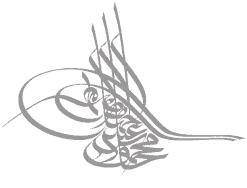Watched
War / Dance with the parents last Monday, at Sinema@Old School.
The cinema was quite interesting. It was small: one theatre, with red couches for seats (three to a couch), seating up to perhaps ninety people. From the posters on display in the box office-cum-gift shop downstairs we gathered it showed mainly local films, and some foreign independent films. And it had been set up in an interesting locale: the
Old School compound (formerly the Methodist Girls' School campus, now converted to "digs for new school thinkers") was full of artist's studios, with plenty of semi-colonial architecture and inviting open space in between. An artist's colony of sorts---a rare creature in this nation of merchants, though it did seem quite in its natural habitat on quaint, quirky Mount Sophia.
The film was even better. The visuals were striking, and the story was deeply gripping---especially since it was a real, not fictionalised, account.
There were two scenes that struck me in particular.
The first was of a convoy of UN container trucks rolling into the refugee camp---now town---of
Patongo. 'Every month, the school closes for one day when the UN delivers food to Patongo,' a caption explained. It wasn't just the school, but the whole town which seemed to stop for the supplies. Huge crowds---seemingly the whole population of the camp---gathered in impatient, pushy lines to demand, collect and jealously guard their share. The camera cut to show a child picking up from the ground grains of cassava which had dropped out of a sack. Why, in today's rich, industrialised, modernised world of plenty, should whole villages and districts be reduced to this kind of rationing? Not that the people seemed malnourished, but compared to the commercial plenty in so many other parts of the world, even in the Ugandan capital, it seems such a primitive and disruptive method of distribution.
The second was of the children of Patongo performing their traditional dance in the finals of the National Competition. 'When I dance I feel good,' a voice-over from one of the performers pipes in, 'I am more than a child of war ... I am strong. I am Acholi.' It reflects how it is not, perhaps, the music and dance itself, but rather the bonding with others---with a larger, deeper culture and heritage created and shared by others---through the music which is more therapeutic and healing. The intricate structure and euphonious sounds may soothe and provide distraction, but in this case the social connotations, not denotations, of music probably matter more.
And a lingering mystery ... the
Lord's Resistance Army, whose somewhat random but horrific acts of violence form the backdrop of the documentary. They appear to be an Acholi rebel group which originated in a general insurgency against a presidential coup by another tribe but ended up attacking their own tribe when support for their cause wavered. Their present motivations may be unclear, but the nature of their atrocities is unambigiously outrageous. They are now surrounded, outnumbered and outgunned, by the Ugandan military, yet their leader refuses to negotiate, and has allegedly killed a deputy who tried to do just that. They may as well be an organised bunch of crazed lunatics, haunting the northern Ugandan bush at random.








